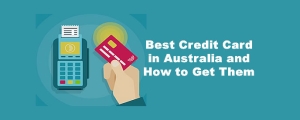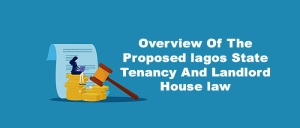
In recent years, the financial landscape in Nigeria has experienced significant growth, fuelled by the rise of digital banking and mobile money platforms. While these innovations have made borrowing more accessible, they have also given rise to a troubling phenomenon: loan scams. These scams target unsuspecting individuals seeking financial assistance, often leading to severe financial losses, identity theft, and emotional distress. This article explores the various forms of loan scams in Nigeria, how to recognize them, and practical steps to avoid falling victim.
The Rise of Loan Scams in Nigeria
Nigeria's booming economy and the increasing demand for quick cash have created an environment ripe for fraudulent schemes. Scammers exploit the desperation of individuals in need of urgent funds, promising quick loans with minimal requirements. The proliferation of online platforms, social media, and mobile money has further expanded their reach.
According to reports from the Nigerian Financial Intelligence Unit (NFIU) and consumer protection agencies, loan scams are among the most prevalent forms of financial fraud in Nigeria. Victims often include students, small business owners, and low-income earners seeking urgent financial relief.
Common Types of Loan Scams in Nigeria
1. Fake Loan Websites and Apps
Scammers create counterfeit websites or mobile apps that mimic legitimate lending institutions. They advertise instant loans with attractive interest rates and minimal documentation. Once individuals apply and submit their personal details, scammers either demand upfront fees or disappear with the victims' information.
2. Upfront Payment Scams
In this scheme, fraudsters claim that applicants need to pay an initial fee—such as processing fees, registration fees, or security deposits—to secure a loan. After payment, they either fabricate approval or disappear, leaving victims out of pocket.
3. Phishing and Identity Theft
Scammers send fake emails, messages, or calls posing as bank officials or loan officers. They request sensitive information like bank details, BVN, or ID cards, which they then use to commit identity theft or siphon funds from victims' accounts.
4. Ponzi and Pyramid Schemes
Some schemes promise high returns through "investment" in loan programs. These often turn out to be Ponzi schemes, where early investors are paid from new investors' funds, eventually collapsing and causing losses for most participants.
How to Recognize Loan Scams
- Being vigilant is crucial in avoiding loan scams. Here are key indicators to watch out for:
- Unsolicited Offers: Be wary of unsolicited messages or calls offering instant loans without application.
- Requests for Upfront Payment: Legitimate lenders do not require upfront fees before disbursing funds.
- Too Good to Be True Offers: Extremely low-interest rates or quick approval times are often red flags.
- Lack of Physical Office or Contact Details: Fake lenders often lack verifiable physical addresses or legitimate contact information.
- Pressure Tactics: Scammers often create a sense of urgency, urging you to act quickly without proper verification.
Practical Tips to Avoid Loan Scams
1. Verify the Legitimacy of the Lender
Check if the lender is registered with the Corporate Affairs Commission (CAC) or the Central Bank of Nigeria (CBN).
Research online reviews and testimonials.
Confirm physical addresses and contact details.
2. Be Wary of Upfront Payments
Avoid lenders demanding fees before releasing funds.
Legitimate institutions usually deduct fees from the approved loan amount or do not require upfront payments at all.
3. Protect Personal and Financial Information
Never share sensitive information like BVN, PINs, or passwords unless you are absolutely sure of the recipient's legitimacy.
Use secure and official platforms for loan applications.
4. Read the Terms and Conditions Carefully
Understand interest rates, repayment schedules, and penalties.
Avoid lenders with opaque or overly complex terms.
5. Use Reputable Loan Platforms
Opt for established banks and licensed microfinance banks.
Use official websites or mobile apps verified by regulatory authorities.
6. Seek Recommendations
Consult friends, family, or financial advisors before applying for a loan.
Verify claims through official channels.
What to Do if You Fall Victim
If you suspect you've been scammed:
Report to the Nigerian Police and the Economic and Financial Crimes Commission (EFCC).
Contact your bank immediately to secure your accounts.
Change passwords and PINs.
Inform relevant authorities about the scam for awareness and prevention.
Conclusion: Loan scams pose a significant threat to financial security in Nigeria. As scammers become more sophisticated, individuals must stay informed and vigilant. Recognizing red flags, verifying lenders, and safeguarding personal information are vital steps in protecting oneself from falling prey to these fraudulent schemes. Remember, if an offer seems too good to be true, it probably is. Always conduct due diligence before engaging with any loan provider.







 Workplace Soft Skills That Make You Stand Out in the Business World
Workplace Soft Skills That Make You Stand Out in the Business World  Essential Certifications And Education For Advancing In Business
Essential Certifications And Education For Advancing In Business